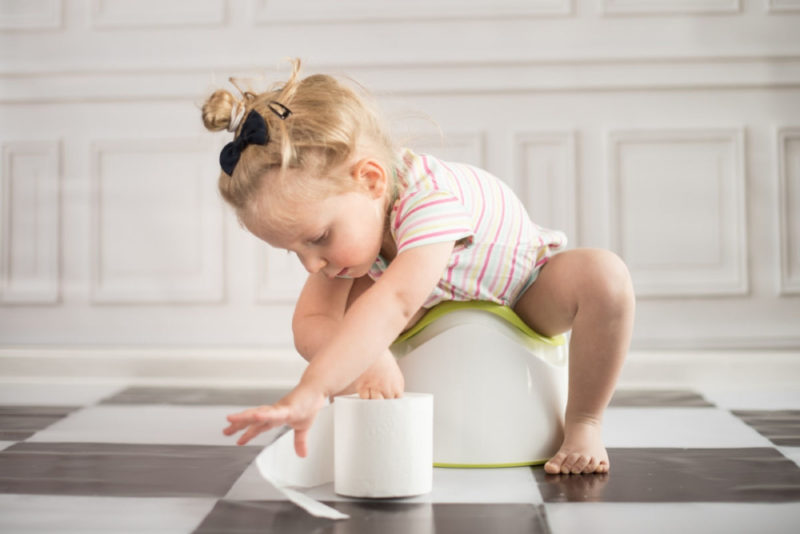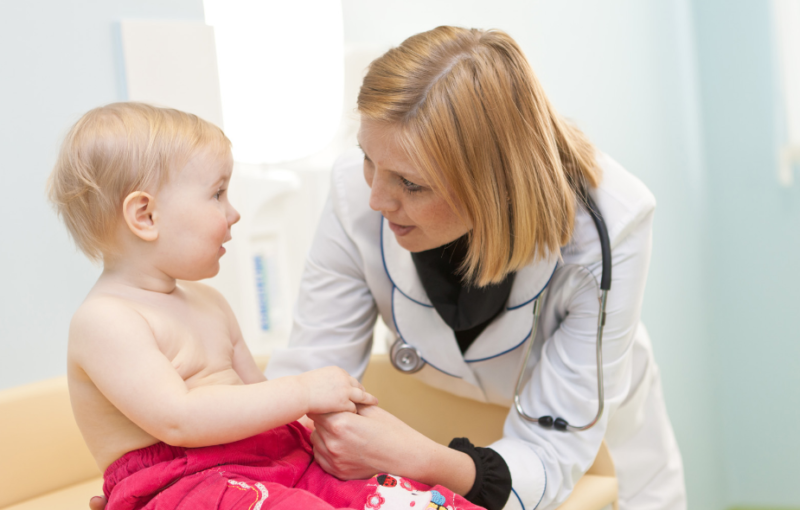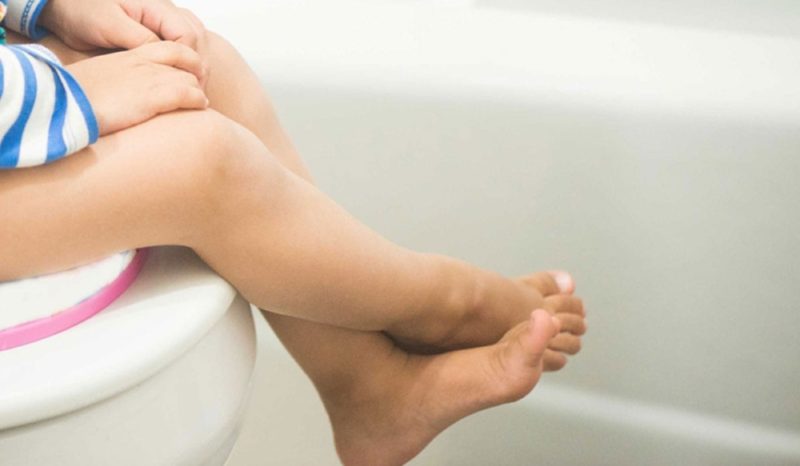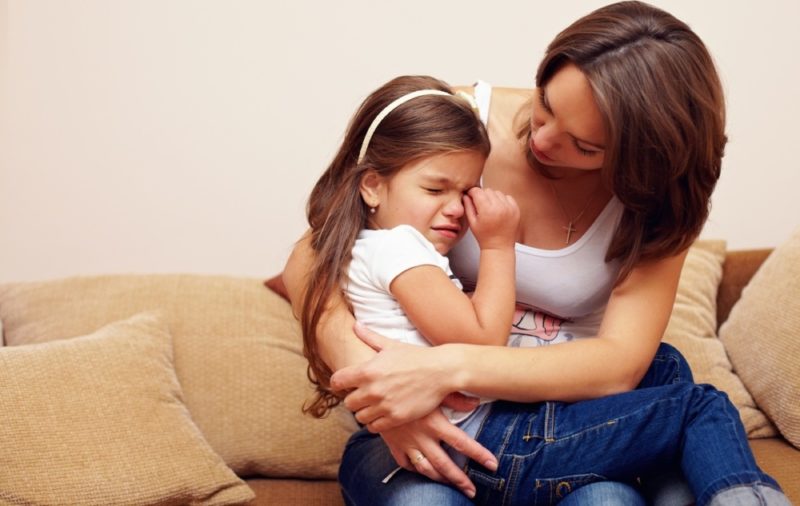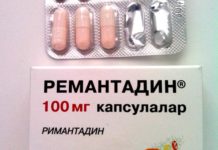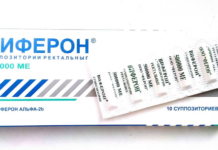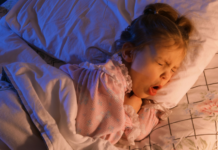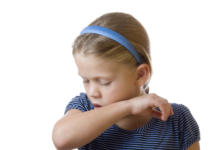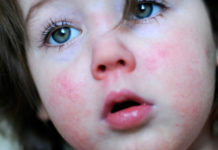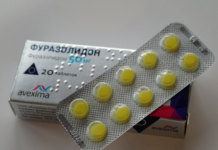Cystitis in children is as common as in adults. Therefore, parents must know how this disease manifests itself in order to take the necessary measures in time.
Material Content:
Causes of cystitis in children
Bladder inflammation occurs for the following reasons:
- Lack or violation of personal hygiene. This is especially true for girls, so parents of daughters should follow this from an early age and teach them to observe the rules of intimate hygiene: regularly wash themselves (from front to back) and change panties daily. This is necessary for the fact that E. coli was not able to get on the mucous membrane of the urinary tract.
- Different kidney problems. If the diseases are of an infectious nature, the risk of developing cystitis increases significantly.
- The presence of helminthic invasion. The entry of parasites into the urethra always entails the development of the disease. In such cases, the fight must be directed to the elimination of parasites, otherwise the usual therapy will be ineffective.
- Subcooling (both of the whole body and legs separately). The immune system of young children is imperfect, so the negative influence of external factors (especially sharp hypothermia) often leads to problems. This rule applies if there is already a latent chronic infection in the body that does not manifest itself in any way.
- Previous surgery on the organs of the genitourinary system. Any reasonable doctor knows about this, therefore, after the operation, he always prescribes prophylactic medication to level this risk.
- Taking potent medications and antibiotics.For the most part, they always weaken the immune system, against the background of which any infection freely enters the body.
- Violations of normal urination. Retention of the natural outflow of urine almost always leads to problems. This can occur both due to congenital anatomical abnormalities of the structure of the genitourinary system, and because of the bad habit of the baby not to go to the toilet on time, but to endure to the last. Purification of the bladder from pathogenic microflora occurs due to its regular emptying under the condition of a strong immune system.
It must be borne in mind that in girls, the disease is much more common. This is due to sexual differences and structural features of the urinary system.
In girls, the urethra is shorter and wider in comparison with the male, which becomes the reason for the easy penetration of the infection inside.
Bladder Inflammation
There are two types of the course of the disease:
- acute (most common in children) - only the mucous and submucous layer becomes inflamed;
- chronic (diagnosed only in cases where the acute stage was not diagnosed and treated in a timely manner). It affects not only the mucous membrane, but also the muscle layer.
In addition to this, the disease can occur in the form of an isolated or a combined infection (for example, cystourethritis, cystopielonephritis), when not only the bladder, but several organs are affected. If the disease occurs against the background of other pathologies, then treatment, first of all, should be aimed at eliminating the underlying disease.
Symptoms and signs of the disease
Symptoms of cystitis in children are hard to miss. Perhaps the exception is only babies who can not say anything to parents about the deterioration of health. But attentive mom or dad will immediately pay attention to strange changes in behavior.
Characteristic features:
- problems with urination, frequent and infertile urination, accompanied by burning;
- pain in the lower abdominal cavity, extending to the lower back;
- a feeling of heaviness below;
- a sharp increase in temperature (while removing the heat is very problematic);
- a change in the color and smell of urine (it becomes more saturated and darker, smells bad);
- sometimes pus or blood droplets are detected in it.
The last symptom already indicates that the little patient is in an extremely dangerous condition and you can’t hesitate for an hour.
If the child is still too young to speak, to understand that he has problems, his behavior will help:
- anxiety, markedly aggravated by urination;
- temperature rise;
- crying and screaming;
- refusal of food;
- agitation, sleep loss;
- strange lethargy and indifference.
These are all symptoms of acute cystitis. In a chronic form, these signs disappear and appear only during exacerbation in the form of frequent urination, discomfort in the lower abdominal cavity, and urinary incontinence.
Diagnosis, see a doctor
Treatment of cystitis in children begins with a thorough diagnosis, since the doctor must first find out the cause of the disease. After that, it will be much easier to choose the appropriate therapy.
Diagnostic measures:
- delivery of a general urine test;
- urine culture;
- ultrasound of the urinary system.
Based on the data obtained, the specialist selects the optimal treatment regimen. For proper therapy, it is important to conduct each diagnostic measure. For example, if the disease is caused by bacteria, then prescribing antifungal drugs is pointless. In the same way, cystitis caused by thrush cannot be treated with antibacterial therapy - this will only worsen the condition of a small patient.
Treatment of cystitis in a child
Treat cystitis in babies only according to the schedule prescribed by the doctor.
A small patient needs to provide:
- strict adherence to the treatment course;
- bed rest and complete rest;
- compliance with all hygiene rules;
- frequent drinking in small portions (pure water, green tea with lemon, a decoction of cranberries or lingonberries), which helps to quickly wash bacteria and inflammation products from the bladder;
- proper nutrition.
Treatment is almost always carried out at home. In the hospital, only newborns, infants and children with severe forms of the disease or complications are determined.
Of the medicines, as a rule, uroseptic and antibacterial are prescribed, to relieve discomfort - painkillers and antispasmodics, as well as herbal remedies.
The patient can put dry warming compresses on the area of the bladder, make sedentary baths from decoctions of medicinal herbs (only warm). With timely treatment on the 4th day, the well-being of the small patient improves, after a week there is no trace of the disease.
Possible consequences
Do not hesitate to consult a doctor, since in the absence of competent and adequate treatment, the disease can lead to a lot of serious complications. First of all, it is renal failure and inflammation of the kidneys (pyelonephritis), as well as sepsis.
It is important to prevent the transition of the disease into a chronic form, otherwise the child will suffer for many years from periodically occurring exacerbations. Parents need to remember that curing an acute form is always much easier.
Prevention
Preventive measures are very simple:
- Do not allow the baby to often become cold. If the child is cold, he needs to be taken to a warm place, given hot tea and rubbed his feet well.
- Ensure compliance with hygiene rules, proper washing and timely change of linen. After bowel movements, babies should always be washed in warm water, and diapers should be changed on time.
- Accustom the child to go to the toilet on time at the first urge, do not tolerate and do not put off until later. This is also true during illness: due to unpleasant sensations during urination, children intentionally restrain urge to the toilet, which is why pathogens do not go outside, but linger inside, actively and rapidly multiplying and aggravating inflammation.
- Undergo necessary preventive examinations by doctors on time.
- From time to time to take tests for the presence of worms.
- In order to prevent the onset of a chronic form, it is always timely to treat acute cystitis in a child. If it was not possible to avoid the transition of the disease to a chronic form, it is necessary, in agreement with the doctor, to give the small patient vitamin complexes and decoctions of herbs to strengthen immunity.
- Strengthen the immune system and harden (in reasonable measures), be in the fresh air.
There is nothing complicated in the proposed measures, however, following these simple rules will help to significantly reduce the risk of this unpleasant disease.


